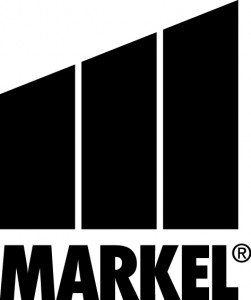Markel Corp.’s second quarter saw a dip in net income even as rate hikes and business growth led to substantial gains for earned premiums. Its combined ratio also came in at a healthy level.
 “Our results for the second quarter of 2021 reflect outstanding performance across our three engines,” Co-CEOs Thomas Gayner and Richard Whitt said in prepared remarks. “We continued to achieve double-digit premium growth in our underwriting operations through both organic growth in new business and more favorable rates, and we delivered an 87 combined ratio for the quarter, demonstrating our strong underwriting discipline and expense management amidst this favorable rate environment.”
“Our results for the second quarter of 2021 reflect outstanding performance across our three engines,” Co-CEOs Thomas Gayner and Richard Whitt said in prepared remarks. “We continued to achieve double-digit premium growth in our underwriting operations through both organic growth in new business and more favorable rates, and we delivered an 87 combined ratio for the quarter, demonstrating our strong underwriting discipline and expense management amidst this favorable rate environment.”
Markel said its dip in comprehensive net income during the quarter was mostly due to a decrease in pre-tax net investment gains.
The Virginia-based specialty insurer and reinsurer booked $774.1 million in net income during the 2021 second quarter, compared to nearly $921.8 million the previous year. That amounts to just over $57 per common share for Q2 2021, compared to $65.75 in the 2020 second quarter.
The company booked more than $1.5 billion in earned premiums, up from $1.36 billion in the same, year-ago quarter.
Net investment gains came in at more than $674.7 million in Q2, compared to $911.2 million the previous year.
Other Q2 result highlights:
- Markel’s 87 combined ratio for the quarter is a point better than in Q2 2020.
- The company’s net investment income surpassed $96.2 million in Q2, compared to $95.6 million in the 2020 second quarter.
- Markel’s insurance segment reported a $205.3 million profit during the quarter, up from $135 million in Q2 2020. Its reinsurance segment lost $5 million, compared to a $24.7 million profit the year before.
- Markel’s investing segment produced $771 million in net income for Q2, but this was down from $1 billion in Q2 2020.
- Gross premium gains reflected significant growth mostly from the company’s professional liability and general liability product lines, across both of its underwriting segments. The company said it is also seeing more favorable rates on catastrophe-exposed lines of business. One exception: workers compensation, which continues to have low, single-digit rate decreases.
Source: Markel





















 Beazley Agrees to Zurich’s Sweetened £8 Billion Takeover Bid
Beazley Agrees to Zurich’s Sweetened £8 Billion Takeover Bid  Retired NASCAR Driver Greg Biffle Wasn’t Piloting Plane Before Deadly Crash
Retired NASCAR Driver Greg Biffle Wasn’t Piloting Plane Before Deadly Crash  Five AI Trends Reshaping Insurance in 2026
Five AI Trends Reshaping Insurance in 2026  20,000 AI Users at Travelers Prep for Innovation 2.0; Claims Call Centers Cut
20,000 AI Users at Travelers Prep for Innovation 2.0; Claims Call Centers Cut 



